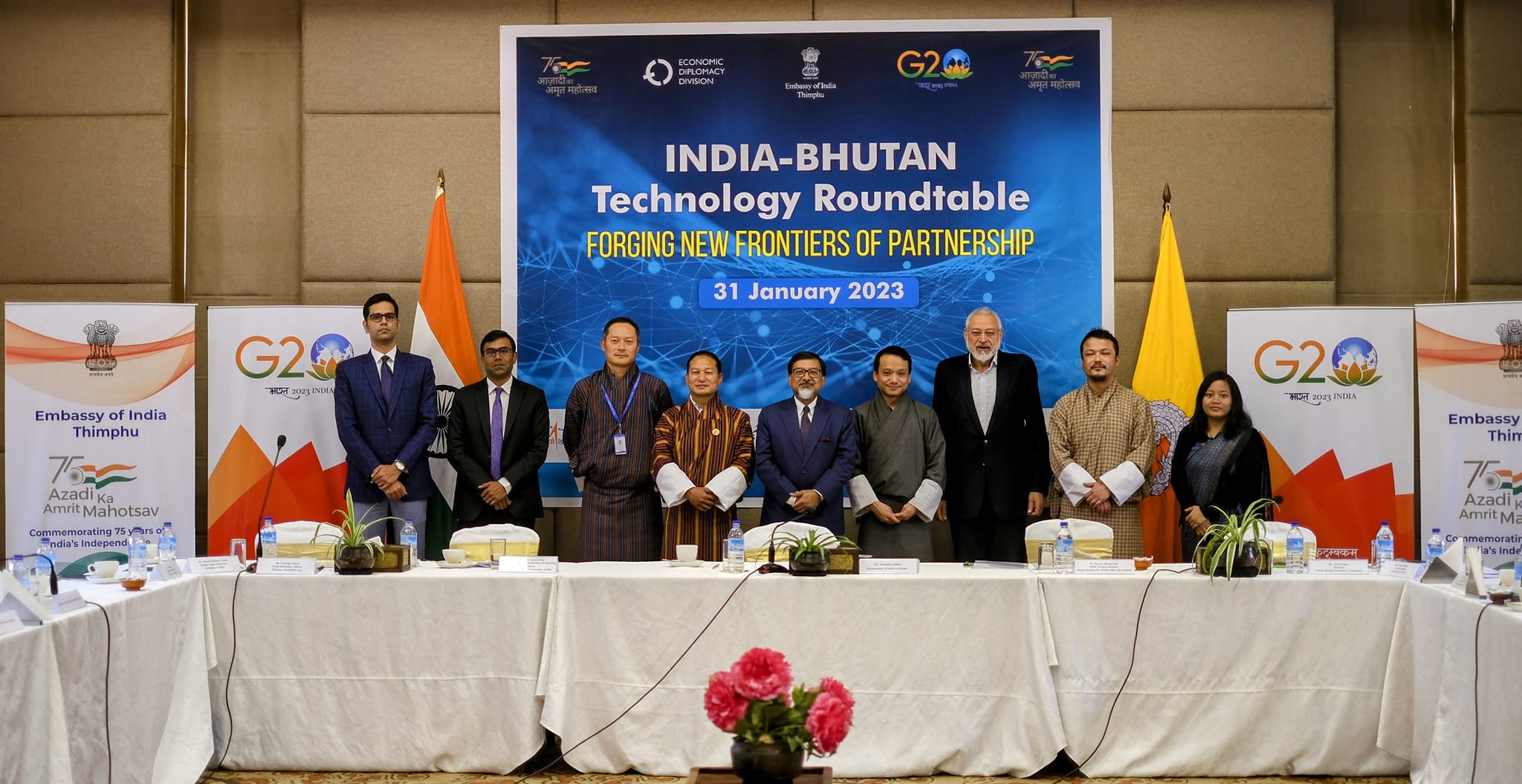
First of all, I would like to thank the organizers for making me a part of this gathering.
I have been thinking of what should I speak here. During the visit of the Indian ForeignSecretary on January 18 and his subsequent engagements, I had a sense of connection on what to speak.
I founded iHub Bhutan in 2017. We are an incubation center where we groom start-ups, guide and hand-hold them, establish them in market and rejoice in their success.
You see, startups have a major impact on digital transformation because they bringinnovative solutions to the market. We allow organizations to take advantage of newtechnologies and stay competitive with the latest trends. Additionally, entrepreneurs canidentify potential areas of improvement and develop solutions to address these needs. AndiHub Bhutan does that for our start-ups.
iHub Bhutan and our start-ups enjoy a unique relationship. Our relationship is forged ongrounds of mutual trust, respect and benefit. It might sound familiar because these are thesame grounds Bhutan and India share such special relationship.
India has always been Bhutan’s closest friend. A special friend that has helped Bhutan in our development journey while giving us our own space to grow and rejoicing in our success.
Today, as Bhutan sees a wave of massive transformation, we have our friend India, copingand supporting us yet again.
During this transformation journey, we realized that we also needed to transform. It was good chance for us to relook and re-strategize our working model and we did so.
At iHub Bhutan, we introduce innovative solutions to the market. And with this, our entrepreneurs help Bhutan become more agile, better serve their customers, and stay competitive. It also helps in exploring potentials to identify areas of improvement and create solutions to address those needs.
While entrepreneur and start-up are new terms, it has existed all through the humancivilization. Whether we call it new invention or discovery, it was an entrepreneur who startedas a start-up and transformed the world we live in.
Innovation has always come in waves. And each of these waves is powered by abreakthrough technology. There was the age of the printing press, the steam engine, electricity, the transportation age, the first computers and, today, data and cloud infrastructure. Each of these inventions triggered thousands of innovations, changing what’spossible in life and work.
We started with block printing, books and today we have something like chatGPT which is way smarter than I will ever be. Starting from an academic assignment to a love letter, it can write you anything.
That is the power of digital transformation and start-ups. And I am sure this AI firm which is a start-up was able to achieve this because of the support of firms like iHub Bhutan and partners like the Government of India, that believes in allowing free thinking and supporting even the wildest ideas.
Like always, India can partner with Bhutan in many ways. The immediate that I can think of is knowledge sharing in your tech advancements. This could include offering training programs, providing resources and access to technology, and establishing public-private partnerships todevelop digital infrastructure. Like the joint satellite initiative, why can’t we have a joint tech based initiative?
Another way to is to focus on digital education sector. Education is key to driving digital transformation and ensuring that citizens are prepared to use digital technologies. India and Bhutan can have a partnership to offer free internet access in all educational institutions to learning materials.
The governments can also offer incentives for businesses to invest in digital education and provide funding for research and development initiatives. Through these measures, citizens will be better informed about digital technologies and have the necessary skills to take advantage of digital opportunities.
There are so many areas of partnership options we can explore. Through the use of digital platforms, both countries can collaborate to build an integrated market that connects customers, companies, and organizations. This will ensure that the digital infrastructure of both countries remain accessible, reliable, and secure. Furthermore, we recommend that the two countries work together to build a robust digital ecosystem that supports innovation and encourages creativity. By fostering closer partnerships, Bhutan and India can create a shared platform of knowledge and resources, enabling both nations to benefit from new opportunities.
These are some thoughts iHub Bhutan gathered and these are all doable.
I thank you for this opportunity and look forward to more such collaboration opportunities.
Thank you.


